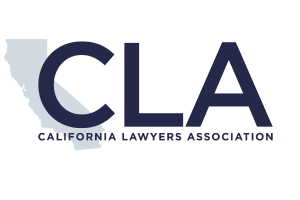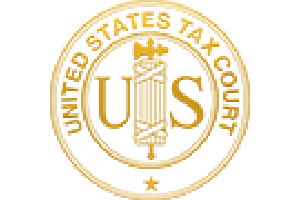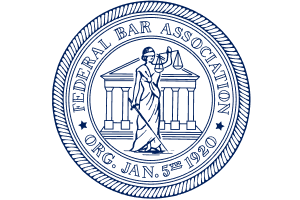Getting Results
CDTFA Sales Tax Audit of Auto Repair Garages
CDTFA Sales Tax Audits for Auto Repair Garages: Common Issues, Tax Audit Strategies
The California Department of Tax and Fee Administration (CDTFA) rigorously enforces sales and use tax compliance, and auto repair garages are frequent targets. This guide provides a comprehensive review of CDTFA sales tax audits of auto repair garages, detailing common sales tax issues, effective tax audit defense strategies.
Understanding CDTFA Sales Tax Audits
Why Auto Repair Garages Are Targeted
Auto repair garages face heightened audit scrutiny due to:
- Cash-intensive operations: Cash transactions raise suspicions of underreported sales.
- Complex tax rules: The mix of taxable auto parts, nontaxable mechanic labor, and exempt transactions creates sales tax compliance challenges.
- High transaction volume: Numerous daily invoices increase the risk of errors.
- Industry-specific issues: Misapplication of tax to specialty repairs, warranties, or exempt sales is common.
- Discrepancies in reporting: Mismatches between CDTFA sales tax returns, federal income tax returns, or bank deposits can trigger audits.
Common Sales Tax Issues in Auto Repair Garages
Auto repair garages face unique sales tax challenges due to the interplay of parts, labor, and specialty services. Below are the most prevalent issues identified in CDTFA audits, based on the CDTFA’s industry guide and other sources.
1. Misclassification of Taxable vs. Nontaxable Charges
- Issue: Sales tax applies to the retail sale of tangible personal property (e.g., auto parts like batteries, tires, or spark plugs) but not to labor charges for installation or repair, provided they are separately stated on invoices. Many garages fail to segregate taxable parts from nontaxable labor, resulting in under- or over-collection of tax. For example, a lump-sum invoice for a brake job may be deemed fully taxable if parts and labor are not itemized.
- CDTFA Audit Focus: Auditors review invoices to ensure parts are taxed and labor is not. Missing or unclear itemization can lead to assessments on the entire invoice amount.
- Example: A garage charges $500 for a repair, including $300 for parts and $200 for labor, but lists it as a single charge. The CDTFA may assess tax on the full $500, assuming all is taxable.
2. Improper Handling of Sales for Resale
- Issue: Garages purchasing parts for resale (e.g., to install in customer vehicles) can buy them tax-free by issuing a resale certificate to suppliers. However, if the parts are used for non-resale purposes (e.g., in-house repairs or warranty work), use tax is owed. Many auto garages fail to track these uses or provide valid resale certificates, leading to sales tax audit adjustments.
- CDTFA Audit Focus: Auditors verify resale certificates and compare inventory records to sales records. Lack of documentation or misuse of parts triggers use tax assessments.
- Example: A garage buys tires tax-free for resale but uses some for its own service vehicles. If use tax isn’t self-reported, the CDTFA will assess it during an audit.
3. Misapplication of Tax to Specialty Repairs or Services
- Issue: Certain services, like smog checks, are nontaxable unless parts are installed. Specialty repairs (e.g., dent repair, auto body painting, or upholstery) may involve taxable materials (e.g., paint, fabric) even if labor is nontaxable. Garages often misapply tax, either failing to charge it on materials or incorrectly taxing labor. The CDTFA’s guide specifies that materials consumed in repairs (e.g., sandpaper, masking tape) may require use tax if not sold to the customer. https://www.cdtfa.ca.gov/industry/auto-repair-garages/specialty-repairs-or-services.htm
- CDTFA Audit Focus: Auditors examine invoices for specialty repairs to ensure taxable materials are identified and taxed correctly. Missing documentation of consumed materials leads to use tax assessments.
- Example: An auto body shop charges $1,000 for a paint job, including $200 for paint and $800 for labor, but doesn’t itemize. The CDTFA may tax the entire amount or assess use tax on untracked consumables like primer.
4. Errors in Exempt Sales Documentation
- Issue: Sales to exempt entities (e.g., the U.S. government) or for out-of-state use are nontaxable, but require specific documentation, such as exemption certificates or bills of lading.
- CDTFA Audit Focus: Auditors request exemption certificates and shipping records. Without them, claimed exempt sales are reclassified as taxable.
- Example: A garage sells parts to a federal agency but doesn’t obtain an exemption certificate. The CDTFA disallows the exemption, assessing tax on the sale.
5. Failure to Remit Collected Sales Tax
- Issue: Auto Repair Garages must collect sales tax from customers and remit it to the CDTFA, even if not separately stated on invoices. Failing to remit collected tax, especially in cash transactions, is a common sales tax audit trigger and can lead to potential tax fraud penalties.
- CDTFA Audit Focus: Auditors almost always compare bank deposits to reported sales to detect possible unremitted sales tax, particularly in cash-heavy businesses.
- Example: A garage collects $10,000 in sales tax but remits only $8,000, pocketing the difference. The CDTFA imposes a 40% penalty for unremitted tax plus interest.
Defending CDTFA Sales Tax Audits
Defending an auto repair garage during a CDTFA audit requires a strategic approach to challenge auditor findings, reduce assessments, and mitigate penalties. Below are key defense strategies, tailored to the common issues above.
1. Challenge Markup Analysis Errors
- Strategy: Dispute flawed markup analyses by demonstrating that COGS includes non-part expenses (e.g., labor, utilities) or that shelf tests are unrepresentative. Provide detailed inventory records, purchase invoices, and sales data to show accurate markups.
- Tactic: Request the auditor’s working papers to identify methodological errors. For example, if the shelf test sampled high-margin parts (e.g., specialty auto parts), argue that it skews the overall markup.
- Outcome: Correcting markup errors can significantly reduce assessed taxable sales.
2. Provide Audit Documentation
- Strategy: Counter assessments by presenting organized, detailed records, including:
- Itemized invoices separating parts and labor.
- Resale certificates for tax-free purchases.
- Exemption certificates for nontaxable sales.
- Inventory logs tracking parts used for resale vs. internal use.
- Warranty and insurance contracts showing tax compliance.
- Tactic: Use CDTFA Form CDTFA-504 (XYZ Letters) to substantiate sales for resale when resale certificates or exempt sales are missing.
- Outcome: Proper documentation can reverse disallowed exemptions or nontaxable charges.
3. Sales Tax Appeal Findings
- Strategy: If the audit results in a Notice of Determination, file a Petition for Redetermination within 30 days using CDTFA Form CDTFA-416 or an online appeal. Request an appeals conference with the CDTFA Appeals Division, presenting new evidence or arguments. If unresolved, escalate to a hearing before the Office of Tax Appeals (OTA).
- Tactic: Engage a tax attorney to craft a detailed petition, citing CDTFA regulations (e.g., Regulation 1698 on record-keeping) and case law. For example, argue that auditor estimates lack a factual basis under In re Otto (OTA case law on reasonable estimates).
- Outcome: Appeals can overturn or reduce assessments, especially if auditors misapplied tax rules.
5. Leverage the CDTFA Settlement Program
- Strategy: If liable for back taxes, apply for the CDTFA Settlement Program to negotiate a reduced payment. This program resolves disputes amicably, often lowering penalties and interest.
- Tactic: Work with a tax attorney to present financial hardship or good-faith compliance efforts to strengthen the settlement case.
- Outcome: Settlements can make liabilities manageable, avoiding prolonged disputes.
6. Mitigate Fraud Penalties
- Strategy: If accused of willfully underreporting sales, demonstrate lack of intent to evade taxes.
- Tactic: Highlight compliance efforts, like timely filings or voluntary corrections, to reduce penalties from 40% (fraud) to 10% (negligence).
- Outcome: Avoiding fraud penalties prevents criminal referrals and reduces financial exposure.
CDTFA sales tax audits pose significant risks for auto repair garages, driven by complex tax rules and common compliance errors like misclassified charges, undocumented exemptions, and flawed markup analyses. Our Sales Tax Lawyers play a critical role in navigating these challenges, offering expertise to protect clients’ financial interests and ensure compliance with California’s tax laws. Call us at (310) 788 9820





















